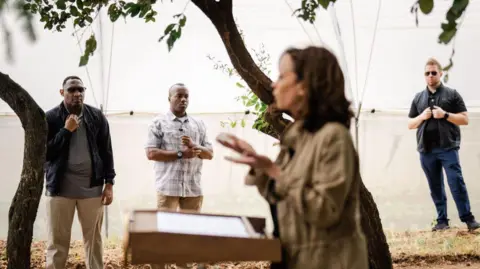President Donald Trump has cancelled former Vice President Kamala Harris' Secret Service detail, seven months after she left office following her unsuccessful presidential campaign.
By law, the US Secret Service provides former vice-presidents and their families six months of protection after their terms end. However, term extensions are possible, which former President Joe Biden reportedly implemented before leaving office. The move has stirred controversy, with California Governor Gavin Newsom and Los Angeles Mayor Karen Bass claiming it is politically motivated.
Previously, neither Biden nor Harris have commented on the rationale behind extending her security arrangements beyond the standard six months. Reports suggest Biden extended protection for one additional year with a directive that was not publicly disclosed.
The legality of Biden's decision is fortified by a 2008 law enabling the Secret Service to offer protection to former vice-presidents, their spouses, and minor children post-term. Under certain circumstances, the Secretary of Homeland Security is authorized to grant temporary protection when warranted by specific risks.
According to Ronald Kessler, an author with Secret Service insights, irrespective of the political implications, extending security is common practice in cases requiring special consideration.
Despite a recent threat assessment indicating no significant risks for Harris, concerns on her team linger regarding her unique position as the first woman and person of color to serve as vice-president. Her time in office experienced multiple threats publicly, with arrests made for individuals threatening her safety during the 2024 elections.
This withdrawal of Harris' protection precedes her upcoming multi-city promotional tour for her book, 107 Days, detailing her brief presidential campaign. Given the Secret Service's reported manpower shortages, it strains resources, especially while accommodating simultaneous national events.
Critics question whether the withdrawal represents a form of political retribution by Trump, resembling previous actions he took against others after leaving office. This pattern raises alarms about the politicization of protective services previously guaranteed by the government.
Unlike former vice-presidents, former presidents receive lifetime security benefits. Unless opted out by the former president, this disparity illustrates ongoing discussions about the safety and political integrity surrounding former officials.





















